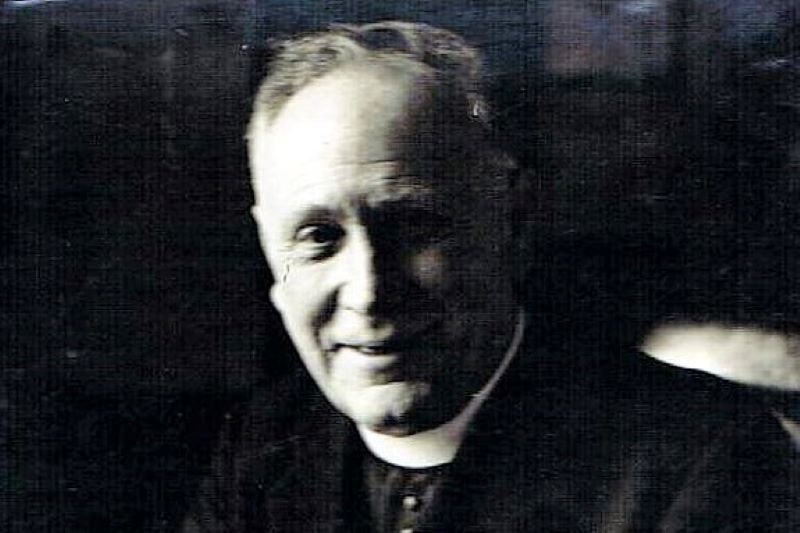90 Years of Muintir na Tíre
Barry Sheppard looks back at Muintir na Tíre, a rural co-operative movement that was set up in Ireland 90 years ago today.

Ninety years ago, on 7th May 1931, Limerick-born priest Father John Hayes addressed a special gathering in Dublin, announcing the establishment of new rural co-operative movement which would “unite in one body the rural workers of the country”. The organisation was to be named Muintir na Tíre Ltd. (the People of the Land). The new organisation drew its inspiration from a variety of sources, notably several prominent rural movements on the European Continent.
The new movement’s leader, John Hayes was born in Murroe, Co Limerick on 11 November 1887 “by the side of the road” in a Land League hut. The circumstances of his birth would leave him with a lifelong concern with rural populations, not only in Ireland, but internationally. His early life, however, was one of exile. The Hayes family were one of a number evicted in 1882, during the Land War by their landlord, Lord Cloncurry. The next thirteen years were spent in exile in what was supposed to be temporary accommodation provided by the League. This period in exile witnessed the births and deaths of several of the Hayes children and grandparents, leaving an indelible mark on the future Muintir leader.
Spirits were raised in those dark years with stories of Michael Davitt’s heroics with the Land League. It was to Davitt’s example Hayes would turn as he sought to fashion a mass rural movement of his own in the 1930s. The Hayes’ experiences of exile would push John and his brother Mick towards advanced nationalism and Arthur Griffith’s Sinn Fein. While Mick would go on to join the IRA, becoming involved in the 1920 hunger strikes, John travelled a different path. Obtaining a scholarship to the Irish College in Paris in 1907, he would now be exposed to European social influences which would bear fruit in later years back in Ireland.
During his time in the Irish College in Paris, Hayes travelled throughout the French and Belgian countryside, gaining fluency in the language and becoming immersed in rural European culture. While losing little of his Irish nationalism, he had become, according to historian Mark Tierney “a Francophile and a European”.
Returning from Paris in 1913, Hayes spent two years in small rural parishes before an unexpected move to the Church of Our Lady of Mount Carmel in Liverpool, where he remained for almost nine years. Here he was forced to confront the stark sectarian realities of life in Liverpool, which had become exacerbated by the ongoing Irish revolution. Nevertheless, he was determined and succeeded in breaching the city’s religious divides, later bringing an ethos of non-sectarianism to Muintir which set them apart from their contemporaries.
His second return to Ireland in 1924 was to a country rife with Civil War divisions, growing urbanisation, and emigration. Spurred into action to revive rural Ireland’s fortunes he was able to call upon the example of European Catholic rural movements such as the Belgian Boerenbond farmers’ union and the Jeunesse Agricole Chrétienne (Young Catholic Agriculturalists Organisation) in France.
Aided by a circle of trusted allies, including J.J. Bergin, the founder of the National Ploughing Championships, the new movement went as far as incorporating aspects of the Boerenbond’s constitution into their own organisation’s rulebook. The following years saw Hayes travel to Rome and Argentina, addressing large and influential audiences and honing his already considerable oratory skills. The new rural movement, however, had grown slowly and a rethink saw it constituted along vocationalist lines in 1937 in keeping with popular Catholic social teachings of the period.
European influence remained strong in the restructured version of Muintir, with the organisation adopting the model of the French ‘Social Weeks’ movement, the Semaines Sociales for their own Rural Weeks. From 1938 until the late 1960s, this annual gathering travelled to different parts of rural Ireland, bringing a cross section of Irish society and many distinguished international guests together on an annual basis to discuss important rural issues.
Among the pantheon of guests who attended over the years was the international rural activist, Archbishop Luigi Ligutti of Des Moines, Iowa, the leader of the influential National Catholic Rural Life Conference in America. Ligutti recognised Hayes’ leadership abilities and brought him into his expanding international network of rural activists which, among other endeavours, lobbied successive Popes for an Encyclical on rural life.
Like Hayes, Ligutti recognised that the path of international co-operation was the future. Through Ligutti, Hayes became Ireland’s representative at rural congresses in the United States, Rome, and Barcelona from 1949 to 1952, addressing the plight of rural dwellers and post-war refugees. Finding receptive audiences in the USA and Europe for his positive message of community development, Hayes became an important figure for a state which had been side-lined from international affairs because of war-time neutrality.
Maintaining a high international profile alongside pastoral duties in Bansha came with a cost to his health. John Hayes died on 30th January 1957 at the relatively young age of sixty-nine. Despite the setback, Muintir continued their international journey, operating from Tipperary town. Adopting the United Nations definition of Community Development in 1958, the movement credited their fallen leader with introducing the concept to Ireland as early as the 1930s. John Hayes’ international outlook still has arguably much to offer Irish society. In a period where we have seen borders become contentious and attitudes hardening, learning the lessons of co-operation and collaboration across national lines are perhaps more vital than ever.
1 Comment
Hi Barry, Most INTERESTING and infOrmatIvE. My late father , seamus mcguire from longford, was national organiser for mUIntir na tire in the late 50s / early 60’s. i have Early memories of ‘fireside chats’ at rural week in gormanston In the 1960s.




